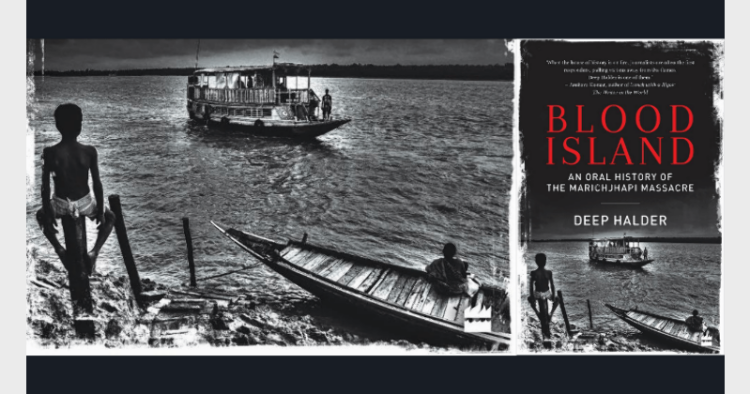The poor Dalit Hindu refugees from Bangladesh had settled on a small island called Marichjhapi in the Sunderbans. The blockade of the island started on January 26 and more than a thousand were murdered on January 31, 1979.
The Communist government of West Bengal led by Chief Minister Jyoti Basu was successful in suppressing the news of state-sponsored pogrom of Dalit Hindus for years.
Those who tried to tell their stories of persecution, the Left branded it “concocted lies”. Never forget the massacre had happened when there were no 24×7 news channels and social media.
The 1971 Liberation War of Bangladesh (then known as East Pakistan) had caused a massive flood of refugees from Bangladesh. Many were fleeing the persecution carried out by the Pakistan Army, in cahoots with the Islamists. The relatively well off managed to flee to safety in West Bengal but it was the poor, the Dalit Hindus, who had to face the double whammy of the Pakistan Army and the poverty.
About 40,000 Dalit refugees moved to Marichjhapi, a small island in the Sunderbans in West Bengal. The Communist movement in West Bengal was picking momentum and the poor refugees had high hopes from them.
Once Communists came to power in the state in June 1977, the poor refugees were misled into believing that they would get a better life as Communists had promised them. Little did they know that a state-sponsored massacre was waiting them.
A year and a half after getting power, the Communists “did a complete volte face, declaring these Hindu refugees of Marichjhapi, who had voted them to power as a burden on the state and branded them as a national problem, who should be dispersed across India, not in Bengal alone.”
On January 24, 1979, prohibitory orders were issued for the island of Marichjhapi. Thirty police launches (motorboats) started patrolling the island, preventing poor Dalit refugees from leaving the island. The refugees, mostly involved in fishing, used to go out to collect the edibles.
The police launched strike against the poor unarmed refugees, some estimates suggest, killing about 3000. The official records put number of casualties at 10.
In 2019, journalist Deep Halder documented the sufferings of the refugees who faced Communist persecution in 1979 and published his book “Blood Island: An Oral History of the Marichjhapi Massacre”.
One of the victims of the state-sponsored pogrom, Santosh Sarkar, told his story to Halder.
He writes in his book “Sarkar would only gain consciousness after the leg was gone. He would spend a month and thirteen days recuperating, between pain and sleep, between depths of despair and yearning for Marichjhapi. He would know later that CPM cadres had landed in Marichjhapi that day, fired at, killed and raped islanders and looted their belongings. The mayhem continued for the whole day.
He would also hear later how the police did not even spare children. Bayonets had been thrust into fifteen school kids – aged between five and twelve – who had taken shelter inside the thatched hut that was their school. Their skulls were crushed. The kids had gathered there to make arrangements for Saraswati Puja, which was to be celebrated the next day. The policemen had smashed Saraswati’s idol before they left.
Though the figures varied, Sarkar would be told later that no less than 1,700 were killed that day; the day he lost his leg: 31 January 1979.”
The state unit of the Bharatiya Janata Party (BJP) has announced a march to Marichjhapi on January 31 to remind “the present generation about the brutal murder of hundreds during the police action in Marichjhapi in 1979”.
The CPM has no remorse even after four decades. Former MP (Lok Sabha) and CPM central committee member Sujan Chakraborty told The New Indian Express that the BJP was attempting to “distort history by flagging an issue which is nothing but a bunch of concocted lies”.














Comments